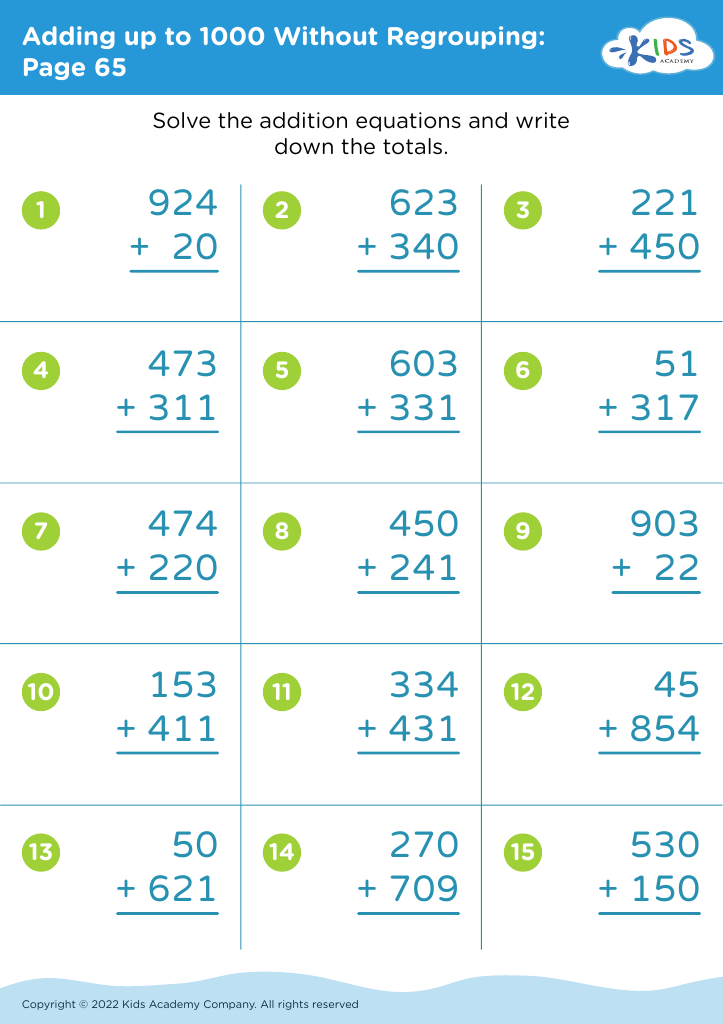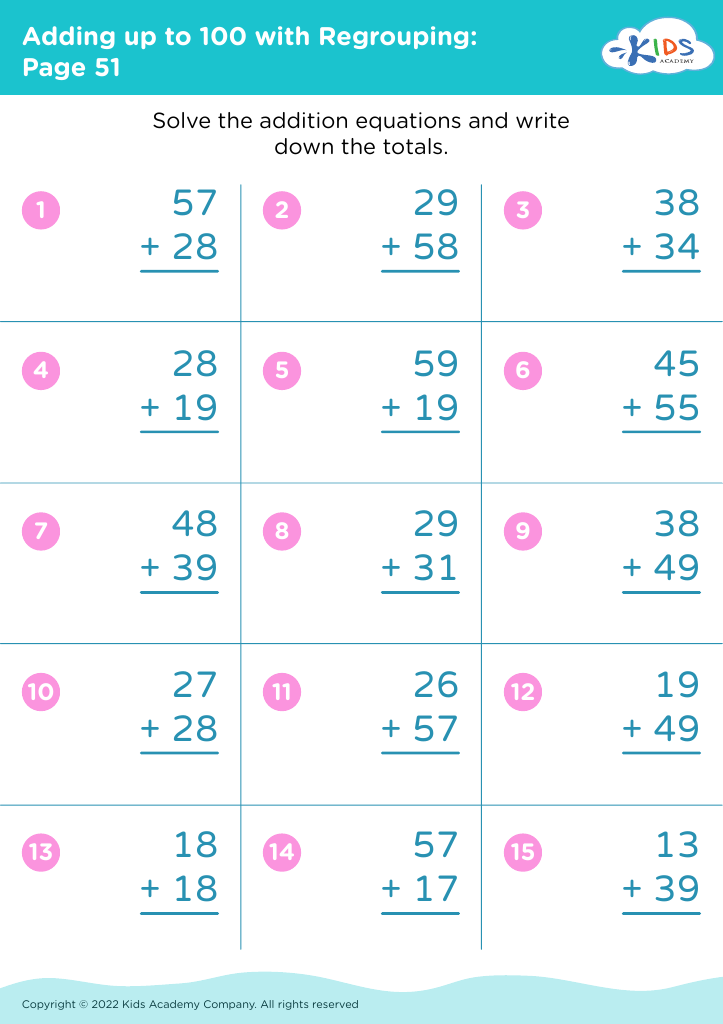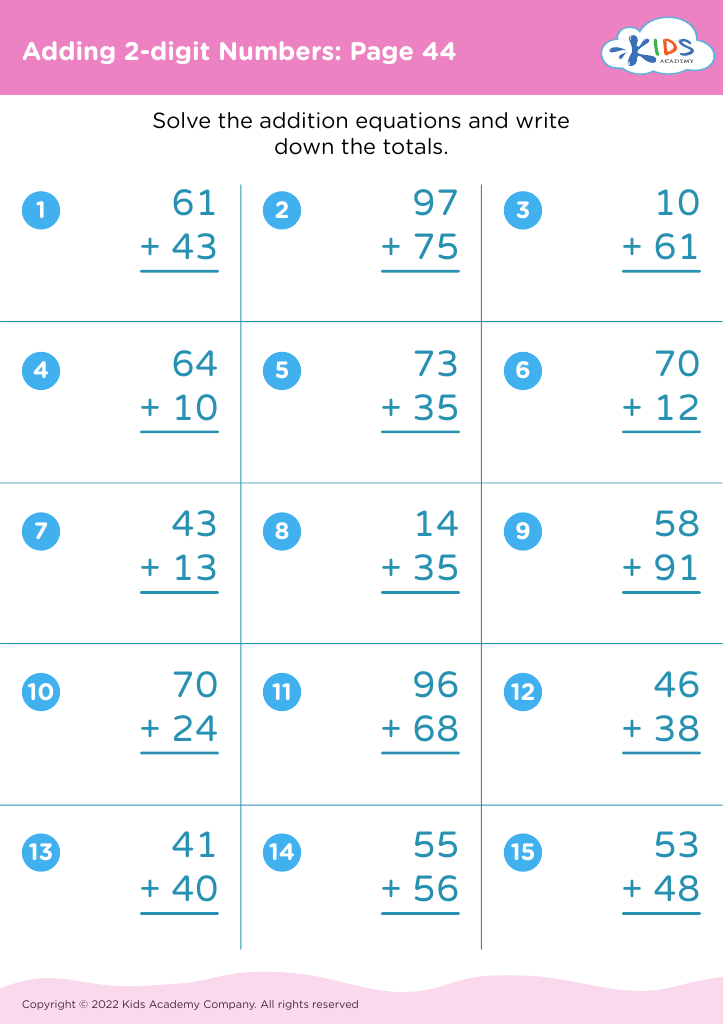Develop analytical thinking Addition & Subtraction Worksheets for Ages 8-9
3 filtered results
-
From - To
Boost your child's analytical thinking with our comprehensive Addition & Subtraction Worksheets, tailored for ages 8-9! These engaging resources at Kids Academy are designed to make learning math fun and effective. With a focus on developing essential skills, our worksheets challenge young minds with a variety of problems, fostering critical thinking and problem-solving abilities. From simple sums to more complex equations, each worksheet offers detailed exercises that enhance computation skills and build a strong mathematical foundation. Perfect for classroom or home use, our expertly crafted materials support holistic learning and pave the way for academic success in mathematics.
Developing analytical thinking skills in children aged 8-9, especially within the context of addition and subtraction, is pivotal for several reasons. At this stage, children are transitioning from basic arithmetic to more complex mathematical concepts. Analytical thinking allows them to understand not just how to perform operations but why they work. This foundational understanding fosters a deeper grasp of numbers and operations, which is crucial as they progress to more advanced topics in math.
Encouraging analytical thinking helps children approach problems methodically. They learn to break down problems into smaller parts, recognize patterns, and devise strategies, which enhances their problem-solving abilities. This skill has far-reaching applications beyond math, aiding in subjects like science and even improving their ability to think critically in everyday situations.
Furthermore, strengthening these cognitive skills at an early age builds confidence. As children see success in solving problems through their analytical skills, they feel more empowered and motivated to tackle new challenges. For parents and teachers, fostering this environment of analytical thinking not only supports academic growth but also contributes to the development of independent, critical thinkers. In summary, cultivating analytical thinking through addition and subtraction at ages 8-9 sets the stage for lifelong learning and success.























